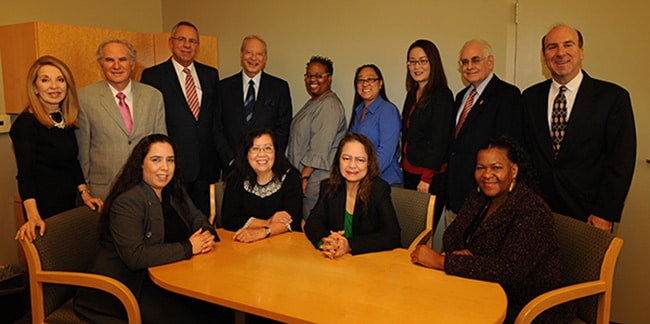Trust Deed Investments


What is a Trust Deed?
A trust deed (also known as a “Deed of Trust”) is an agreement that is used to ensure a lender gets repaid when it lends money to a borrower to buy or refinance real estate.
In the Trust Deed, the lender, the borrower and a neutral and independent third party (known as the “Trustee”) agree that the Trustee will hold the property until the loan is repaid in full, at which point Trustee will give (or “deed”) ownership of the property to the Borrower.
Here at Fidelity, we only enter into trust deeds with respect to commercial or non-owner occupied residential real estate. Should the borrower fail to make the agreed upon payments on the loan, the Trustee will try to sell the property in a “Trustee’s Sale”. If the Trustee is able to sell the property, the Trustee will pay the sale proceeds to the lender to the extent of the unpaid debt. If the Trustee is unable to sell the property, the Trustee will give (or “deed”) the property to the lender.
For lenders, Trust deeds are often preferable to mortgages because typically a Trustee’s Sale occurs much quicker than the alternative procedures that accompany mortgages.
Trust Deed Investments
Our extensive knowledge and experience have enabled us to successfully make loans supported by trust deeds (“Trust Deed Investments”), regardless of market conditions, for over 50 years. As a result of our success, many of our investors and their families share a long-term relationship with Fidelity and have been investing with us since we opened our doors in 1971.
Our investors include financial managers, pension funds, professional corporations, family trusts, and high net worth individuals, as well as many smaller investors seeking to balance and diversify their investment portfolios.
Trust Deed Investments are not liquid. In other words, you cannot quickly convert your investment into cash, as you can with a municipal bond or shares in a blue-chip company. You need to be willing to stick with your investment until the borrower pays off the loan. Like any investment, Trust Deed Investments are not without risk.
Our Trust Deed Investments are in high demand due in large part to our conservative approach to evaluating risk combined with our streamlined and expedited loan closing process.
We pride ourselves on the personal attention and services we provide to our investors, which services include collecting and distributing monthly payments. Most notably, when you invest with Fidelity, you can rest assured that we will never sell your investment on a secondary market, which means you can expect the same high level of service from us for the entire life of your loan.
Fidelity is considered by many to be one of the founders of our specific form of trust deed lending. Go ahead…ask around about us.
To find out more about investing with Fidelity, please give us call at (800) 752-9533 or email us at info@fidelityca.com should you have any questions.
Why Investors Choose Fidelity
We Thrived When Others Failed. Why?
They’re Simple Ideas – Improved with Technology – and Followed Deliberately Over Four Decades
- We treat your money as if it’s our own
- We personally examine each property
- We don’t rely solely on outside appraisals
- We evaluate each property on a prescribed loan to value ratio
- We carefully screen our borrowers
- We’re thorough
- We’re realistic
- We’d rather turn down a loan than have a foreclosure
- We’re dedicated to paying the highest yield with the lowest risk
- We service the loans until they are paid in full
- Less than one half of one percent (.5%) of our loans have resulted in foreclosure since 1971

Longevity of Employment – the Fidelity Way

Our Founder, Charles “Chuck” Hershson created a culture of personal service, loyalty and focus on doing just a few things really well. Pay people well, treat them well, and you can measure their satisfaction by how long they work there. By many measures, the Fidelity Way has been a success.
Long-term and skilled employees provide our investors with in-house escrow, complete documentation and professional loan servicing. We collect payments and distribute monthly checks to our investors until the loans are paid in full. Fidelity is not structured to sell loans into the secondary market.
Our investors include financial managers, pension funds, professional corporations, family trusts, high net worth individuals, as well as many smaller investors seeking to balance and diversify their investment portfolios.
Many of our clients have been both borrowers and investors in Trust Deeds. Now that’s loyalty.
Investors Want Fidelity For Our Trust Deed Experience, Back Office Skills, and Knowledge of these Loans
We’ve been successful in trust deed investments in varying market conditions because of the knowledge and experience we bring to the selection of properties.
As a result, many of our investors and their families share a long-term relationship with Fidelity and have been investing with us since we opened our doors in 1971.

Underwriting Standards for the Loans

Loan-to-Value Ratios (LTV)
The key to underwriting secure loans is having a realistic margin of safety from equity. We maintain a comfortable confidence margin. Typically, our LTV ratios for commercial loans do not exceed 50%. For residential loans, the LTV ratios vary from 50% to 55%
Conventional lenders routinely finance commercial loans at 75% LTV and residential loans at 80% and more.







